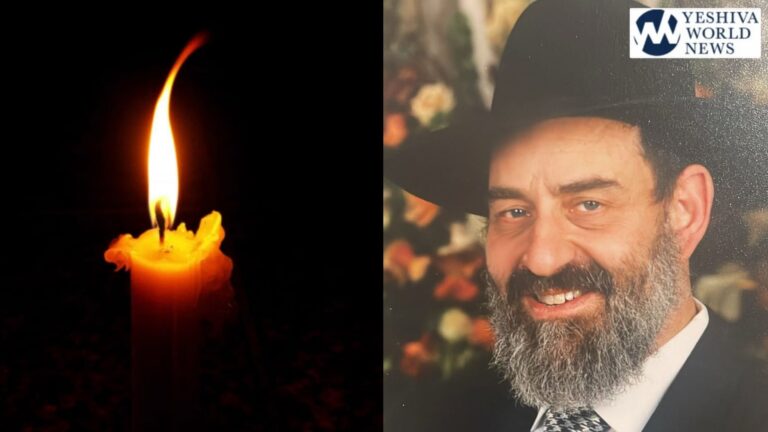By L. Halevi.
As we approach Malky’s shloshim, it’s hard to believe that an entire month has already gone by since her tragic passing. The pain of her loss doesn’t get easier on her family and friends. The void that she leaves in the hearts of those who knew her best and loved her most is as deep as ever. In fact, after the initial shock of losing Malky seems to fade, the pain that is left in its wake seems to sting deeper.
It leaves us all grappling with what happened to give it some meaning, to make some sense of it, to figure out a way forward to learn from the loss and effect positive, and necessary , change to do things differently to save hundreds, if not thousands of Neshamos from ending up with the same bitter fate.
We asked a group of Malky’s closest friends a few poignant questions. Though it wasn’t easy for them to express themselves, at a time when the pain was still so fresh and raw in their hearts, they took the time to answer these questions as openly and honestly as possible, in the hopes that expressing their thoughts will help people understand a little bit more about Malky, and the challenges that she – and thousands like her – deal with within the current system.
Some answered at length, while others responded rather briefly, but seeing their collective answers definitely open a window into Malky’s life and Malky’s soul, and indeed give a whole new perspective to understanding what goes through the hearts and minds of these precious Neshamos as they struggle through life facing unimaginable obstacles that others may never have, or never realize even exist among us.
For privacy reasons, we will not be using any of the girls’ real names. Some of the responses have been slightly edited for brevity, privacy and grammar, but have not otherwise been changed.
1) When you think of Malky, what is the first thing that comes to mind?
Elisheva: “Unconditional love, without a doubt unconditional love.”
Fraidy: Her laugh.
Rachel: Stand up for what’s right, even though you stand out
Judy: When I think of Malky, I think of ambitious, tough, yet soft.
2) Do you feel that positive changes are possible to help more children and teenagers in the community feel more accepted?
Elisheva Within the frum community? For sure, people need to be taught to be less judgmental and taught not to STARE! That is so important. Malky would hate walking down her block because all eyes were on her. Schools need to teach and emphases the importance that a Jew is a Jew is a Jew and that’s all that matters! You must love all Jews and judge each other favorably.
Fraidy: Yes, absolutely.
Rachel: Yes. Unconditional love, such as Malky’s parents showed her can make all the difference.
Judy: Yes.
3) How do you define friendship?
Elisheva: That’s a thinking question….I guess friendship for me is loving and caring for someone to the point where you give them time, attention, loyalty…..go out of your way for them and show them you support and are there for them. But only to a certain extent. If your friend is doing something unhealthy or harmful to themselves or others then it’s your place as their friend to tell them what is right or wrong and help them towards the right direction/guidance.
Fraidy: Being able to trust that person and feel trusted. Feeling that your supported no matter what.
Rachel: Friendship is experiences. Happy experiences, emotional experience, argumentative experiences. But always experiences
Judy: My definition of friendship is when two people enjoy each other’s company, even without speaking.
4) Malky had so many friends who loved her, yet never felt like she had friends. Why do you think she felt that way?
Elisheva: Malky had a lot of people in her life that she chilled with and considered friends but a small circle of close/best friends that loved her tremendously (including me) and she liked it like that and knew we were always there for her. She knew who she had and she always said that she felt like it was enough. She may have sometimes said “uch I have no friends” but so has every girl including myself and then I have my people who say “oh you know you have friends”. Everybody feels lonely at times; that doesn’t mean there is something wrong with her or anyone else. I can relate to that 100%. Malky had quality over quantity and said that all the time. I will never have another friend like her she was one of the most incredible girls I ever knew.
Fraidy: She felt alone even though she wasn’t and it’s not something I can explain because I feel the same way too.
Rachel: Malky, although super confident on the outside, struggled with self-doubt and loneliness. When one perceives themselves a certain way, projecting it into reality is only normal. Malky was so sensitive to others and to herself. I only wish she saw how much I and so many others cared and lover her.
Judy: I think when people who have a lot of friends, yet feel like they have none, are missing self-acceptance, self-love, and self- importance.
5) Everybody excels and achieves differently, and nobody (child or adult) should feel ashamed of having to deal with a disability, a weakness or any other issue. What would you tell the world to help them understand this more clearly, from your perspective?
Elisheva: First, I would say that everyone has some type of issue, disability, challenge, weakness etc. so, there is no reason to be ashamed of who you are because you’re like everyone else, just struggling and working to overcome whichever specific challenge you have. Second, everything in this world is from God and God doesn’t make mistakes and he doesn’t give you something you can’t handle so you shouldn’t be embarrassed or make fun of anyone because in a way that would be like you not having the ultimate faith that God is all good and knows what’s best.
Really these issues just need to be talked about more and become regular household and community topics. Once they are normalized people won’t feel as ashamed. You don’t get embarrassed talking about what you’re doing in school so you should feel bad talking about something that is a part of you. People are taught to feel ashamed because the community and families are taught that they are off limit topics and should be hush hush but that’s silly and everyone just needs to work on getting out of that mindset. Everyone will be much happier once they are comfortable with themselves and others and aren’t constantly worrying about what others are thinking and busy with other people’s lives. Life is short and we are here for a purpose so just focus on that!
Fraidy: I was born this way
Rachel: “Everybody is a genius. But if you judge a fish by its ability to climb a tree, it will live its whole life believing that it is stupid.” I believe Einstein said it best. Why would we want to be cookie-cut into a way of succeeding in a way so identical to everyone else? Are we not all created differently for a reason? How then are we to excel in similar ways?
Judy: Don’t judge a book by its cover, don’t judge it at all. Someone worked hard on it and put effort into it. Just like Hashem made us. It is not our job or place to judge! Leave that to the one above!
6) If you could tell Malky one thing now, what would it be?
Elisheva: I love you to planets far beyond the moon. That’s what she used to say to me. And that life does get better and I wish we could have shared all the experiences we had planned together.
Fraidy: Whatever you’re going through, I am right here with you. Being an addicted myself I share some similar thoughts and feelings & I know and I understand exactly how you feel, so let’s feel this way together so we don’t have to feel alone. I love you.
Rachel: I would remind her how I NEVER judged her, always loved her and wanted with all my heart to help her.
Judy: Neshama, my dear Malky! You are important to me, your existence matters! The world needs your stories and help, stay true to you and don’t let anyone take away your spark.
7) What would you tell people out there about the importance of supporting the “Yad Malky Chinuch Initiative- Yedidyah USA” that the family has established in her memory?
Elisheva: I don’t know much about the organization but if it helps children with learning disabilities then I’m all for it and people should support it. I have learning disabilities myself and the struggle of growing up and going to school like that is so difficult. I only learnt to read when I was 11 years old and in 5th grade and it was horrible being in class with kids I couldn’t keep up with. If a kid needs extra attention they should have the opportunity to get that help regardless of their parent’s financial situation or community stigma.
Fraidy: I don’t know about it yet. If it helps people like Malky, I support it.
Rachel: As tribute to Malky, all those who loved her and knew her, have the obligation to carry her name and assure she is never forgotten. Yad Malky Chinuch is a good way to make sure that does not happen, while helping people who are in similar situation to Malky and get the help she unfortunately was never able to get.
Judy: The importance of supporting Yad Malky Chinuch is for our next generations. This is something very important to be aware of even if it isn’t personal! Help each other out.
CAMPAIGN ENDS TONIGHT! BE PART OF THE SOLUTION NOW!
VISIT www.Unidy.org/Malky to give meaning to Malky’s tragic death!












3 Responses
“everything in this world is from God and God doesn’t make mistakes”
Thank you Elisheva
Most struggles experienced by students in school, including poor executive skills, ADHD, APD, and dyslexia, can be remedied by neurophysiotherapy which develops/strengthens the pathways in the brain.
Early intervention in treating these issues can prevent a child from feeling worthless.
Check out learningtechnics.com or call Neurolinks for more info.
Mods, I am in no way affiliated with these; this info is strictly l’toeles horabim.
I would love to see a fund set up to help pay for a child’s Neurolinks program (approx $4500) because treating problem at this level is far more effective and cost-effective in the long run than tutoring and most other stop-gap measures that are typically implemented.